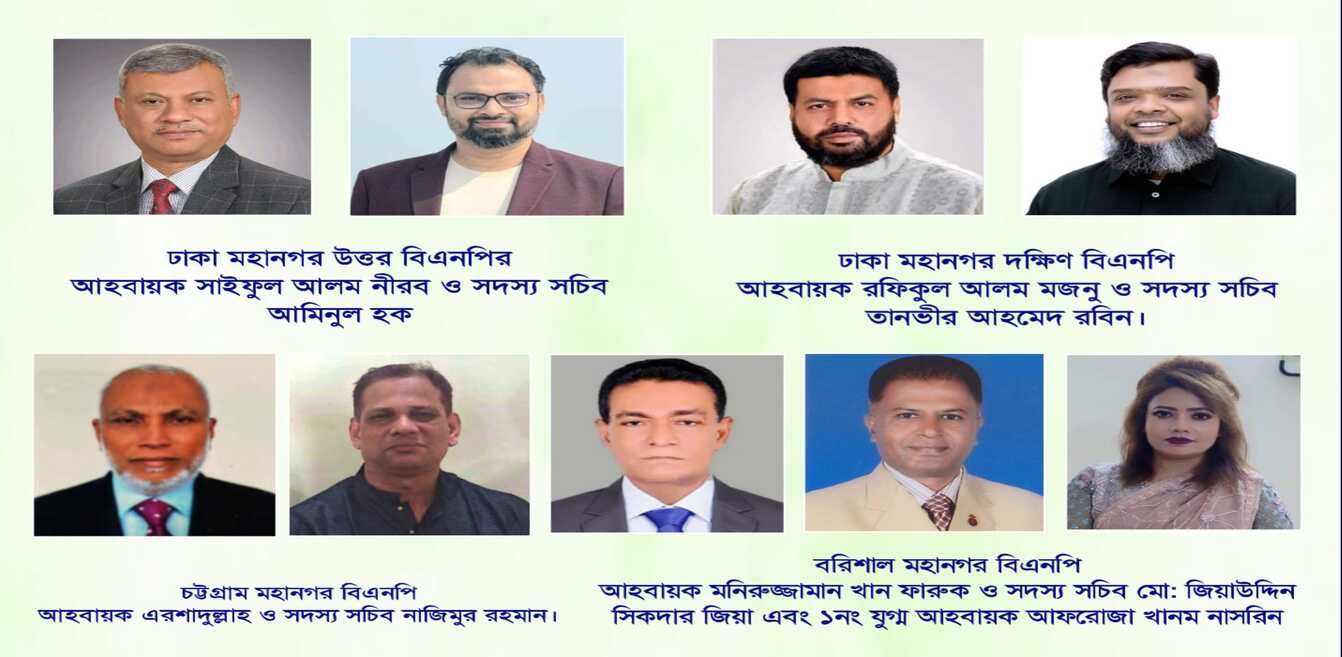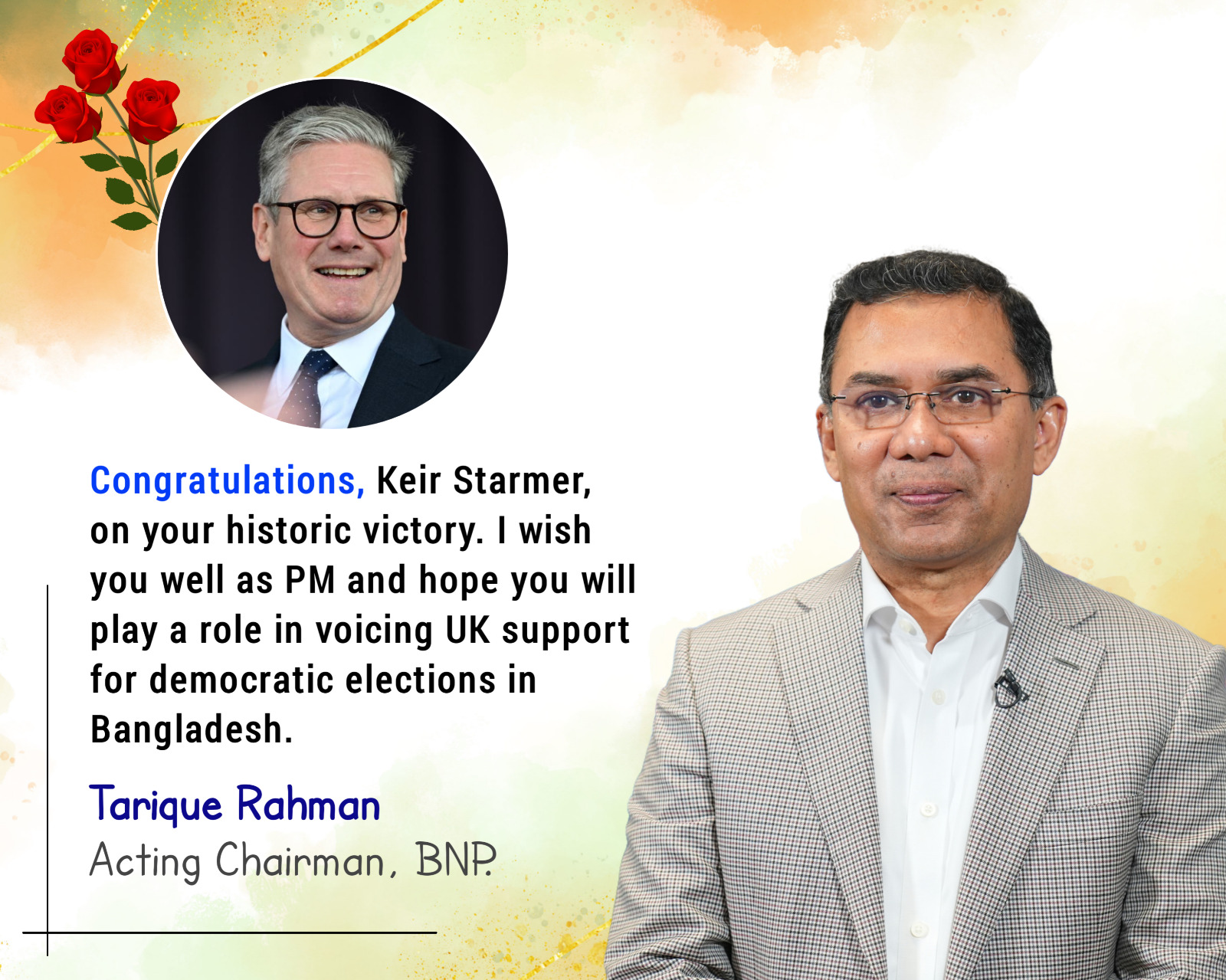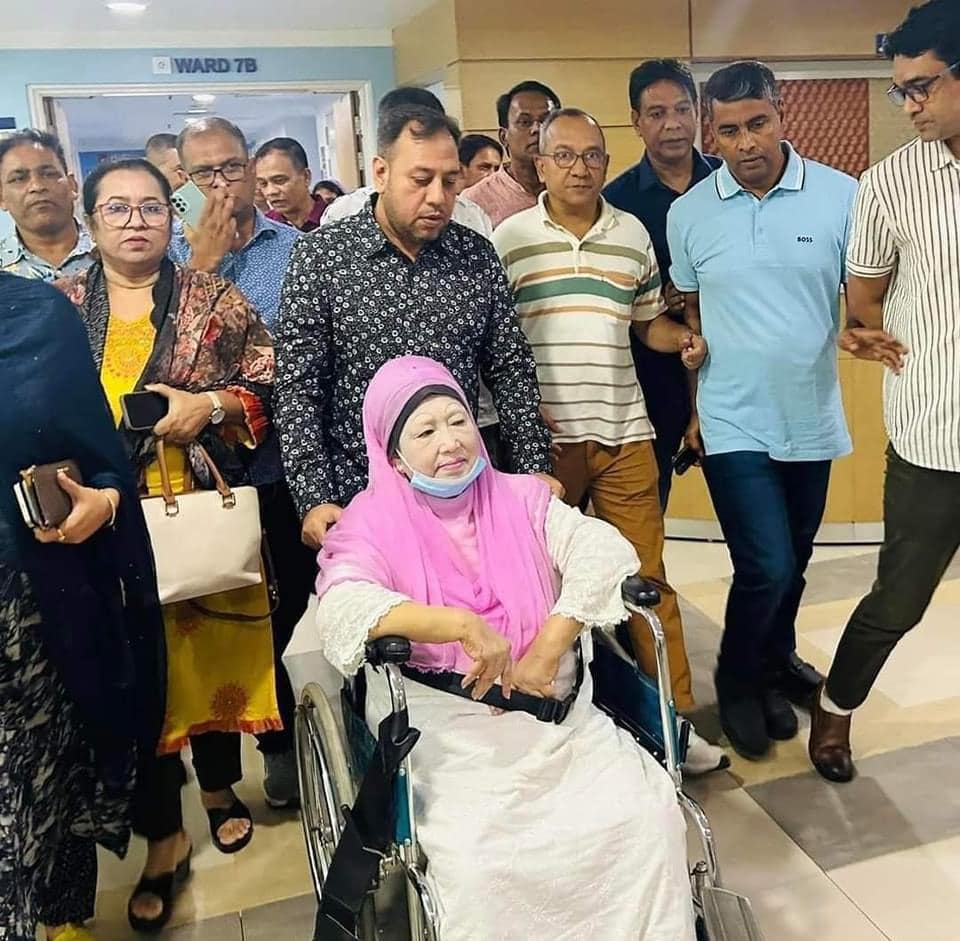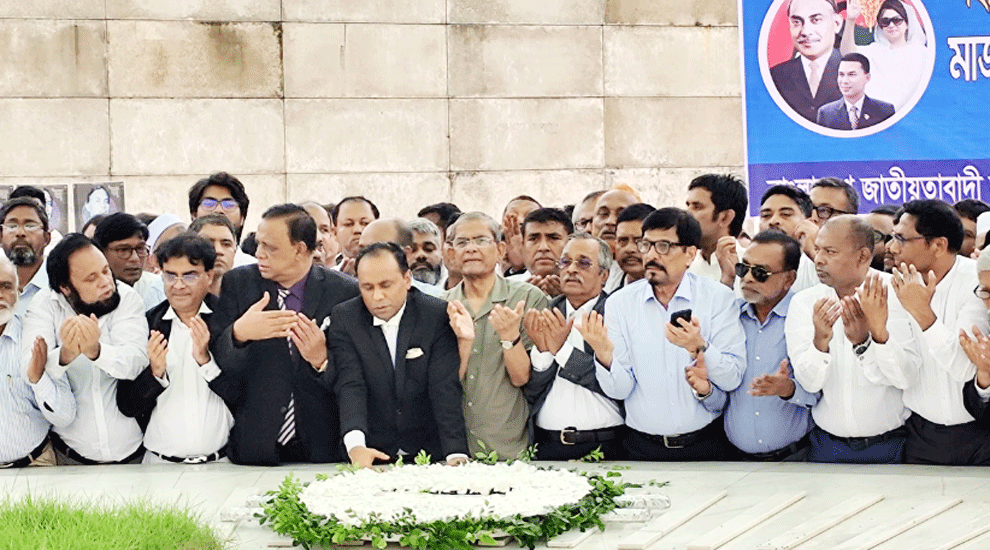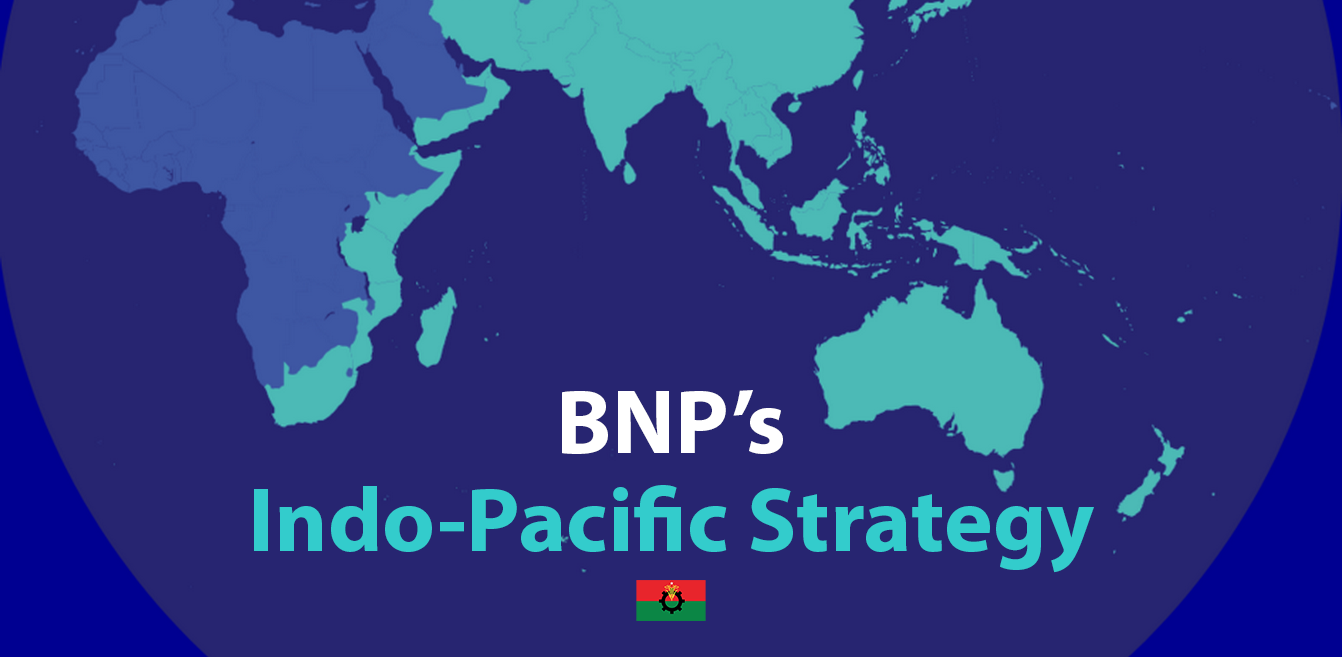
A Democratic Future for Bangladesh and the Indo-Pacific Strategy
Over the last 17 years, the Bangladesh Nationalist Party-BNP has endured unprecedented human rights violation and injustice in the hands of an authoritarian regime. This is a testament to BNP’s commitment to upholding democratic principles. As the main opposition party in Bangladesh, we see it as our duty to restore the power that was unjustly taken away from the citizens but rightfully belongs to them. BNP firmly believes democracy and preservation of democratic values will be the bedrock of any commitment to the Indo Pacific Strategy.
Our Indo-Pacific vision reflects the desires of the people by prioritizing their interests and aspirations. We pledge to align economically and strategically with democratic nations and institutions and implement domestic initiatives to empower all Bangladeshis with freedom, equality, and prosperity, irrespective of gender, religion, ethnicities or politics.
Our party is dedicated to ensuring a secure and stable Indo-Pacific region while protecting our national interests and contributing to collective security.
Ever since he restored multi-party democracy in Bangladesh in the late 1970s, BNP founder President Ziaur Rahman took the country away from the Soviet bloc and made it a key member of an open, free and democratic world. Bangladesh economy thrived and defied all doomsday predictions largely due to the privatization drive, free market and globalisation policies undertaken by President Zia and his widow -- and three times former Prime Minister Begum Khaleda Zia in the formative years of the country.
But since 2009, the country has been effectively ruled by a corrupt one-party government, propped up by oligarchs and crony capitalists at home and authoritarian regimes abroad. Needless to mention the disenfranchisement of the citizens through stolen elections, the regime’s political persecution caused 1204 enforced disappearances, 1539 political killings, 799 extrajudicial killings in the name of crossfire, filing of 1,41,633 fabricated and unfounded cases involving 49,47,019 BNP activists as accused.
The challenge for BNP is now to re-establish a multi-party democracy.
It has set an Indo-Pacific Strategy in an effort to chart a new future for the country with deeper cooperation with the democratic, progressive and liberal nations in the region.
Bangladesh at the Heart of the Indo-Pacific:
Historically Bangladesh is a vital part of the Indo-Pacific. It is nestled at the head of the Bay of Bengal. Its geographical proximity with two of the world's great powers and Nepal, Bhutan and Myanmar by land has made the country geo-strategically important in South and Southeast Asia.
The country shares the world's fifth longest land border with India, and the nearest Chinese border is only 200 kilometers away from Bangladesh’s Banglabandha land port. The country is also only 61 and 6 kilometers away from landlocked Nepal and Bhutan respectively.
Bangladesh straddles the Bay of Bengal between the Indian subcontinent and the Indo-Chinese peninsula. It is also the largest bay in the world and is only over 1,500 kilometers away from the Strait of Malacca. The Bay of Bengal region is also home to a fourth of humanity.
Thirteen million Bangladeshis live abroad, which is the fourth highest among the top 20 countries. Along with Saudi Arabia and the United Arab Emirates, a lot of Non-resident Bangladeshis live in the Indo-pacific regions such as Malaysia (1,000,000), Singapore, Brunei, and the Maldives.
However, compared to the geo-strategic importance that it rightfully deserves, Bangladesh faces serious threats from Climate Change and has been plagued by man-made disasters such as environmental degradation, endemic corruption, misgovernance, a broken and partisan criminal justice system and a total absence of strong democratic institutions.
Our Indo-Pacific Action Plan:
BNP has set broad foreign policy goals in recent years. Aligning with democratic countries within and beyond the Indo-Pacific is one of the key goals. Below are our key strategies and set of actions for greater integration with the Indo-Pacific:
Creating a Democratic Future at Home:
1. Drawing on the political ideology of Bangladeshi nationalism, BNP strives for a progressive and inclusive Bangladesh, which is a key Indo-Pacific nation and which flourishes on pluralism, richness of diverse faiths and ethnicities, perspectives, and opinions. We believe it is imperative that we establish a democracy committed to freedom, transparency, pluralism, tolerance, justice, rule of law in Bangladesh and respect for human rights -- goals which have been outlined in our recent 31 state reform charter.
2. We believe in the peaceful transition of power through free, fair and credible elections. Our electoral efforts will be focused on building strong democratic institutions.
3. Freedom of expression should be at the heart of our democratic accountability. We recognise that a free and independent press and a vibrant civil society is important to help fight a country’s slide into authoritarianism and intolerance.
4. We will combat disinformation and fake news by creating an environment where the media can operate independently and hold the government to account. We will promote media literacy and increase collaboration to address threats from information manipulation both from home and abroad. The Digital Security Act (DSA)/Cyber Security Act (CSA) to persecute and harass journalists and political dissidents, will be abolished.
5. We strongly believe that corruption is one of the biggest threats to any democracy as we’ve seen from our own experience as a nation that it is the biggest tool one-party states use to prop up despotic rulers. Fiscal transparency, we think, is crucial and it is important to work in conjunction with international and transnational bodies. Fiscal transparency is required also to ensure genuine assessment of developmental activities.
6. We believe it is people’s inalienable right to be informed and to make their own independent choices. The right to know should be as fundamental a right as food and shelter. We also wish to work with the US, Australia, Japan, India, ROK and other countries to increase our country’s ability to fight cyber threats from state and non-state actors.
Supporting a Democratic and Secure Future for the Indo-Pacific:
7. We support efforts to build open societies in the Indo-Pacific where the governments can make independent political choices.
8. A democratic, free, liberal and progressive Indo Pacific is of vital importance to Bangladesh. The Indo- Pacific should be a space where governments can maintain their sovereign choices in accordance with international laws and mandates from the people.
9. Bangladesh will fully cooperate with countries in the region to ensure that the Indo-Pacific trade routes remain open and accessible. We will support rule-based approaches to the maritime domain, including in the South China Sea, the East China Sea, Indian Ocean and the Bay of Bengal.
10. As our geo-strategic location demands, we want to help state and non-state actors across the region to help them establish democratic societies. This we want to achieve with active assistance from the US, Australia, Japan, India, the ROK and other countries of the region.
11. It is crucial for us to strengthen our civil-military cooperation with the democratic nations in South and Southeast Asia, Japan, India, the ROK, Australia and the United States, the European Union. These nations together can form a deep security cooperation to keep the trade routes of the Indo-Pacific open, secure and safe.
12. We support security cooperation that can form a temporary strike force to combat disaster management and pandemic response; natural, accidental or deliberate biological threats; and the trafficking of weapons, drugs, and people.
13. We seek active support and collaboration from advanced Western economies to acquire sustainable technology for civil, economic and military use. We believe long-term and deepening cooperation between Bangladesh armed forces and the Indo-Pacific partners is necessary for the capacity building and resilience training of Bangladesh’s security forces.
14. Bangladesh should also strengthen its cooperation with ASEAN nations to complement its Indo- Pacific strategy.
15. BNP will take robust approach countering terrorism, separatism and extremism, and ensure that the territory of Bangladesh can never be used for activities that are detrimental to any other neighbor state’s security and interest. A dynamic Indo-Pacific strategy will be taken ensuring a balance between short-term and longer-term challenges like counter terrorism etc.
A Liberal, Open, Free Market Future for Indo-Pacific:
16. We believe strong common values are necessary to achieve a free, liberal and open Indo-Pacific. Bangladesh should be an integral part of alliances, associations and regional groupings and institutions, which will foster open and free maritime trade in the region. These efforts should begin with our closest neighbors and partners.
17. Bangladesh should promote building an economic framework with Indo-Pacific nations that will help our economies to harness rapid technological transformation and adapt to climatic transition and energy security.
18. Recognizing the Indo-Pacific Economic Forum's (IPEF) capacity to promote economic cooperation, trade, and investment in the area, opening up new opportunities for sustainable growth and regional integration, Bangladesh should actively pursue a key role in the forum. We should develop new approaches to trade that meet high labor and environmental standards.
19. We want to work with the US and our Indo-Pacific partners to make sure that the region’s supply chains become secure, diverse, open and consistent.
20. We should work with Indo-Pacific nations to advance common approaches to frontier technologies, value-aligned technology standards, the internet and secure cyberspace.
21. We should facilitate the movement of scientists and researchers and open access to scientific data for highly advanced or innovative collaboration.
22. The COVID-19 pandemic has made clear the need for a rapid recovery that promotes broad-based economic growth and requires investments to encourage innovation, strengthen economic competitiveness, produce good-paying jobs, rebuild supply chains, and expand economic opportunities.
23. We should promote resilient and secure global telecommunications, focusing on 5G vendor diversification and Open Radio Access Network (O-RAN) technology. We should seek a telecommunications supply market that is well-postured to allow for new and trustworthy entrants.
24. We fully support the recapitalisation of the World Bank and IMF to scale up vital lending to poor and middle-income countries including those in the Indo-Pacific in their efforts to bring prosperity, secure a greener and climate-resilient future and counter predatory lending. We intend to ensure that every financial support and development project is implemented with transparency and accountability as per global best practices.
A Greener Climate Resilient Bangladesh and the Indo-Pacific:
25. Our shared responses to the climate crisis are both a political imperative and an economic opportunity in the Indo-Pacific, which is home to 70 percent of the world’s natural disasters.
26. Bangladesh should work with Indo-Pacific partners to develop climate targets, strategies, plans, and policies consistent with limiting the global temperature increase and transitions to a net-zero future.
27. Bangladesh should invest in clean-energy technology and foster climate-aligned infrastructure investment. It should also focus on reducing vulnerability to the impacts of climate change and environmental degradation and building critical-infrastructure resilience and addressing energy security.
28. We should safeguard the health and sustainable use of the region’s vast oceans, including legal use of
resources, enhanced research cooperation, and promotion of beneficial commerce and transportation.
29. We should build close cooperation with the countries in the Himalayas in an effort to share real time data on melting glaciers and the erratic patterns of rains, which in recent years have triggered floods, and natural disasters in lower riparian Bangladesh.
30. Bangladesh will work closely with Indo-Pacific partners to strengthen public health systems to withstand future shocks from pandemics, invest in global health security, and expand regional platforms to prevent, detect, and respond to health emergencies. We should work with the World Health Organization (WHO) and other multilateral organizations to strengthen preparedness and response.
A Dignified and Sustainable Solution to Rohingya Crisis:
31. We will increase engagement with the international community, both at a bilateral and multilateral level, to find a just, acceptable and dignified solution to the Rohingya crisis. The UN should supervise voluntary, secure and dignified repatriation of the Rohingyas to comply fully with UN treaties and protocols on returning refugees.
32. We recognise the crimes against the Rohingya as genocide and war crimes, as termed by the UN independent Fact-Finding Mission on Myanmar. We will engage with other nations to expedite Rohingya genocide case against the Myanmar military Junta.
33. We will build up support to help recognise the persecution of the Rohingyas as an Indo-Pacific and global problem. Tens of thousands of Rohingyas have undertaken dangerous voyages to Southeast Asian countries, in search of protection and livelihood since 2008. Many have since become victims of human trafficking and ended up dead from starvation. Enhance regional cooperation among ASEAN nations is essential to improve the protection of Rohingya both in Myanmar, refugee camps abroad, and at the sea.
34. We will build support for targeted sanctions against the Myanmar regime and its military, focusing on their concrete economic interests. We will also support credible accountability efforts to ensure justice for the victims and prevent the recurrence of violence.
35. We welcome and fully support the Burma Act recently enacted by the United States, which supports democratic activists and resistance forces fighting for democracy in Myanmar. We emphasize the need for the Act to address the repatriation issue of Rohingya refugees, cooperating closely with our key partners like the US, the UK, Japan, Canada, Australia, Qatar, Saudi Arabia, Turkiye, the OIC, the EU, the UN, and other key strategic partners in the neighbourhood.
36. We will ensure that the views and aspirations of the Rohingya themselves are taken into account when devising repatriation plans.
The Indo-Pacific strategy taken by the democratic world, expected to reshape the global security and economic architecture will ensure a free, open and inclusive Indo-Pacific. Her strategic location at the apex of the Bay of Bengal positions Bangladesh as a hub of connectivity between the Western and Eastern hemispheres, as well as the Indian Ocean and Pacific Ocean regions. We would embrace an Indo-Pacific strategy for a free, open, prosperous, liberal, democratic and secure Indo-Pacific region in an effort to ensure security cooperation, rule-based order, harmony, safe maritime navigation, sustainable development, free trade and resilience to withstand climate, health, pandemic and transnational threats.
23 October 2023
Bangladesh Nationalist Party-BNP

.png)
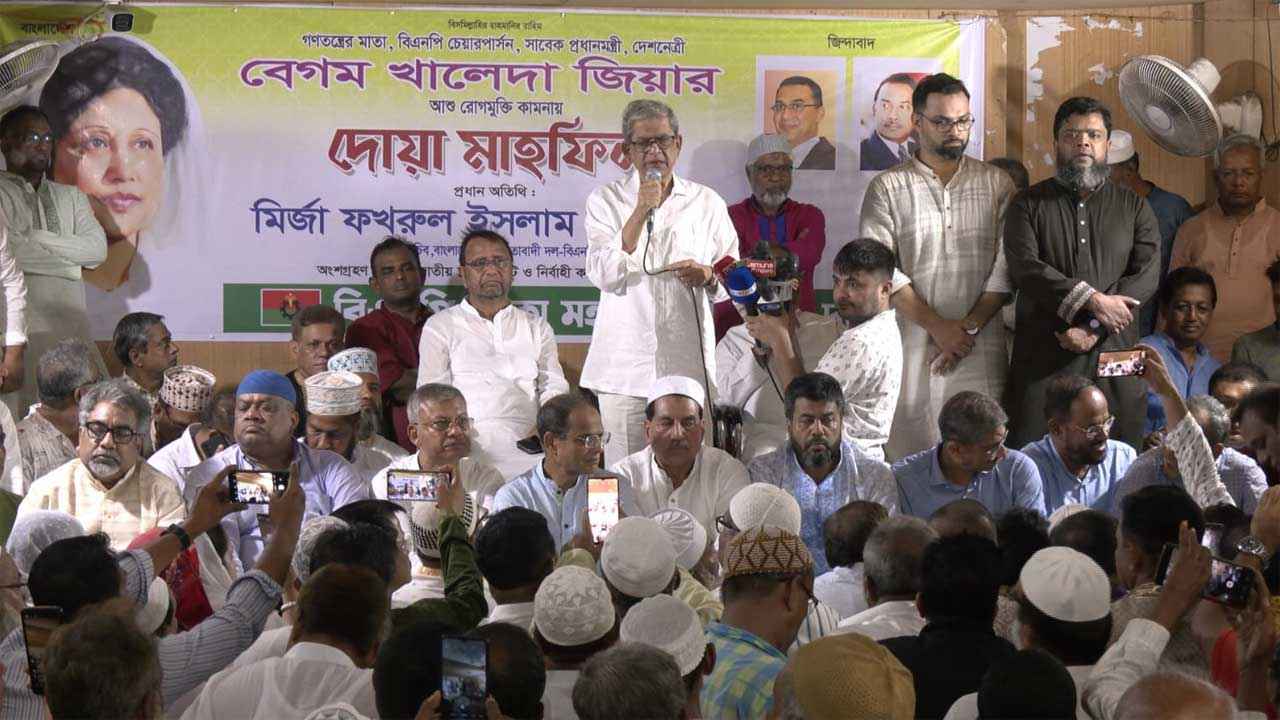
.png)

